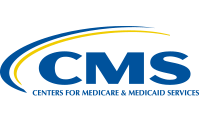Ohio Hospital for Psychiatry offers effective, comprehensive treatment for individuals struggling with depression. Learn more about the signs and symptoms of depression.
What is Depression
Learn More About Depression
Depressive disorders affect people of all ages, at all different stages of their lives. While sadness is something that everyone experiences, there are people who experience it in such an overwhelming manner that its effects can become debilitating and cause significant impairment on their ability to function appropriately on a daily basis. These individuals may begin experiencing negative effects in their social, occupational, and educational responsibilities which can further perpetuate their downslide into deep depression.
Depression presents itself in a variety of forms and in various stages of severity. The most common forms of depression are separated into three distinct categories:
Major depressive disorder occurs when the symptoms that a person is struggling with are so extreme that they affect his or her ability to function in most, if not all, aspects of daily life. People suffering from major depressive disorder will find that their negative emotions have taken control of their ability to eat, sleep, work, and participate in pleasurable activities.
Minor depression is characterized by the presence of depressive symptoms for more than two weeks, but which do not meet the criteria required for a diagnosis of major depressive disorder. People suffering from minor depression will encounter significant levels of distress, but will not necessarily find disturbance in their ability to function.
Dysthymia (or persistent depressive disorder) is diagnosed when a person has suffered from the symptoms of depression for two years or longer. People who are struggling with dysthymia tend to experience difficulties maintaining control of their emotions, but do not typically suffer from significant dysfunction in their everyday lives.
Statistics
Statistics of Statistics
Depressive disorders are one of the most commonly diagnosed mental disorders in the United States. It is estimated depression affects one in ten Americans, yet only around 52% are actively seeking treatment. According to the Centers for Disease Control and Prevention (CDC), major depression is the leading cause of disability for people in the U.S. between the ages of 15 and 44. The National Institute of Mental (NIMH) reports that women are 70% more likely than men are to experience depression during their lifetimes.
Causes and Risk Factors
Causes and Risk Factors for Depression
Like most mental disorders, the exact cause of depressive disorders has not been identified. The general opinion amongst professionals is that the onset of depression is the result of a combination of different factors, which include the following:
Genetic: Genetics are believed to play a significant role in the development of depression. Depression tends to run in families which suggests that its onset is largely hereditary. That being said, people who do not have any family members suffering from depression can still develop the disorder.
Physical: Neuroimaging studies of the brains of people who have depressive disorders have displayed structural differences in the areas that are responsible for sleep, appetite, and behavior. Individuals with depression are said to have an imbalance of the brain chemicals responsible for regulating various physiological functions, including norepinephrine, dopamine, and serotonin.
Environmental: Because the brain is so malleable, it is constantly changing as a result of its experiences. As a result, it is widely believed that the things that people experience can play a role in the development of any type of depressive disorder.
Risk Factors:
- Being female
- Family history of depression or other mental illnesses
- Death of a loved one
- Suffering from trauma, especially in early childhood
- Chronic stress
- Major life changes (e.g. moving, losing a job, getting a divorce)
- Serious and/or chronic medical conditions
- History of substance abuse
- Low socioeconomic status
- Poor social support
Signs and Symptoms
Signs and Symptoms of Depression
The symptoms of depressive disorders will vary greatly based on the severity of the disorder, the support system that one has, one’s inherent personality traits, and one’s ability to implement appropriate coping mechanisms. The frequency of which someone experiences the depressive episodes can also cause variations in the symptoms.
Behavioral symptoms:
- No longer participating in things that one used to enjoy
- Angry, unprovoked outbursts
- Isolating oneself from family and friends
- Self-harm
- Attempting suicide
Physical symptoms:
- Changes in sleeping patterns
- Changes in eating patterns
- Significant weight loss or weight gain
- Chronic headaches
- Unexplained bodily aches and pains
Cognitive symptoms:
- Difficulty concentrating
- Slowed thinking
- Difficulty making decisions
- Memory problems
Psychosocial symptoms:
- Feelings of worthlessness
- Feelings of guilt
- Feelings of helplessness
- Minimizing one’s abilities
- Low self-esteem / poor self-image
Effects
Effects of Depression
The effects of depressive disorders can be long-lasting when a person does not receive treatment. Without treatment and lifestyle changes, the symptoms of any type of depressive disorder will worsen, which can result in increased problems in a person’s life. Some examples of these long-term effects can include, but are not limited to, the following:
- Drug and/or alcohol addiction
- Obesity
- Self-harm
- Social isolation
- Relationship problems
- Increased levels of anxiety, which can lead to further psychological disturbances such as panic disorders or social phobias
- Suicidal thoughts and behaviors
Co-Occurring Disorders
Co-Occurring Disorders of Depression
There are a number of different mental disorders that can occur alongside depressive disorders, including:
- Substance abuse disorders
- Post-traumatic stress disorder (PTSD)
- Anxiety disorders
- Obsessive-compulsive disorder
- Schizophrenia






